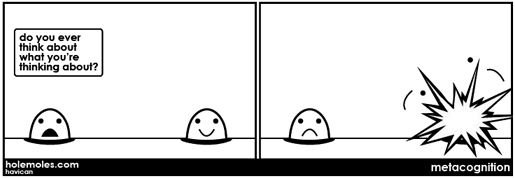I am always reminded of one of the goals of my own teaching when I come across the following line from Walt Whitman's Leaves of Grass, “he who most honors my style learns to destroy the teacher.” While at the Masters School the teacher might not be literally “destroyed,” Whitman did capture one of the truths about life-long learning; all teachers should strive to reach a point of planned obsolescence (like automobiles) and eventually, usually each June, the real test of education occurs with one simple question: “Does the student keep embracing learning during the summer and for the rest of their life?”
This may be what Albert Einstein meant when he said, "Education is what remains after one has forgotten everything he learned in school." Real education is what has been internalized, not memorized. Life-long learning is something that is done without a traditional teacher; it relies on what Ralph Waldo Emerson called “self-reliance.” And how can one become a life-long learner, if one does not learn how to teach oneself? Learning has its own sustainability that has to be cultivated during the school year, if it is to be internalized. Each student learning how they learn as an individual is one of the keys to making learning more fascinating as well as increasing that person's intrinsic motivation and drive.
Therefore, teachers must prepare students to become their own teachers. How can they do that without focusing primarily on the student’s learning rather than solely on their own transmission of educational information or knowledge? Seminar teaching has this dedication to life-long learning at its core in ways that other methods do not. It is about the empowerment of the student’s learning, not only the sanctioning of the knowledge.
Harkness is a more flexible system than a traditional classroom because it allows for the student to perfect a methodology for finding information and creating meaning. Students can learn not only what they think, but also why they think what they do. Seminar teaching allows for a student to cultivate a meta-cognitive view (if the teacher promotes it) that embraces not only what is being learned but also how the individual student is learning it. To bring a student into this dialogue is to allow them to be truly in control of their own learning; it is one of the keys to giving students a feeling of authorship of their own learning. Simultaneously, dynamic veteran teachers virtually always make the transition from focusing on the craft of their teaching to an addictive wondering about how and when learning occurs. Seminar teaching benefits not only the student, therefore, but prolongs the vitality and vibrancy of teacher’s growth as well.

In short, Harkness has a special pedagogical place because it addresses the HOW students learn every bit as much as the WHAT they are learning. This epistemological focus brings forth a particular opportunity for a school to embrace the diversity of its population and move it toward a multi-cultural, pluralistic attitude and ethos. Diversity (a model that most private schools have mistakenly adopted as the Holy Grail) is simply the description of a condition that exists to a greater or lesser degree. And in the Masters School population the level of diversity is quite high; it is a profound opportunity to make the learning at the school truly experiential. Multi-culturalism (though I think we need a new word to describe the process/attitude that I am suggesting), however, involves students and faculty challenging the premises that are the foundation of deeply held tribal truths and exposing the ones that are, in fact, unwarranted assumptions. In this case, it invokes the essence of “critical thinking" because it makes one's assumptive world transparent. It is in those moments that experience-based learning thrives and grows.

In short, Harkness has a special pedagogical place because it addresses the HOW students learn every bit as much as the WHAT they are learning. This epistemological focus brings forth a particular opportunity for a school to embrace the diversity of its population and move it toward a multi-cultural, pluralistic attitude and ethos. Diversity (a model that most private schools have mistakenly adopted as the Holy Grail) is simply the description of a condition that exists to a greater or lesser degree. And in the Masters School population the level of diversity is quite high; it is a profound opportunity to make the learning at the school truly experiential. Multi-culturalism (though I think we need a new word to describe the process/attitude that I am suggesting), however, involves students and faculty challenging the premises that are the foundation of deeply held tribal truths and exposing the ones that are, in fact, unwarranted assumptions. In this case, it invokes the essence of “critical thinking" because it makes one's assumptive world transparent. It is in those moments that experience-based learning thrives and grows.
Robert Penn Warren has suggested that America is at its best when it exhibits a willingness for tough self-assessment that is unafraid of self-critique. A school that can use seminar teaching to engage in that self-assessment on an individual, group and institutional level, participates in a very American activity and embraces the particular multi-cultural experiment that is embodied both in the very nature of America and its flagship city in that endeavor, New York City.


Postscript: The next level of Harkness involves investigating the individual student's relationship to the creative process--what sometimes goes under the rubric of “dialogue." However, the next level also involves a radical re-thinking of what "leadership" is in those moments of creative collaboration. Leadership where you have cultivated an ethic of "collective responsibility" is different than some discussion classes where the primary objective is "voice your opinion." More on that later, OK?
No comments:
Post a Comment